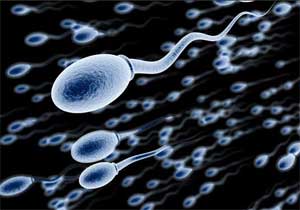- Home
- Editorial
- News
- Practice Guidelines
- Anesthesiology Guidelines
- Cancer Guidelines
- Cardiac Sciences Guidelines
- Critical Care Guidelines
- Dentistry Guidelines
- Dermatology Guidelines
- Diabetes and Endo Guidelines
- Diagnostics Guidelines
- ENT Guidelines
- Featured Practice Guidelines
- Gastroenterology Guidelines
- Geriatrics Guidelines
- Medicine Guidelines
- Nephrology Guidelines
- Neurosciences Guidelines
- Obs and Gynae Guidelines
- Ophthalmology Guidelines
- Orthopaedics Guidelines
- Paediatrics Guidelines
- Psychiatry Guidelines
- Pulmonology Guidelines
- Radiology Guidelines
- Surgery Guidelines
- Urology Guidelines
Defective Sperm chromatin may cause male infertility, suggests study

USA: The researchers at the University of Pennsylvania seems to have discovered the cause of unexplained male infertility and the possible ways to correct it, in their recent study published in the journal Developmental Cell.
In cases of unexplained infertility, a person may have normal semen counts, normal motility. Yet they may have conceiving problems. Healthy sperm shed 90 to 95 per cent of proteins called histones and replace them with protamines, or smaller proteins that allow sperm to store DNA prior to fertilization. Recent research has linked male infertility with defective sperm that fail to "evict" these histones from DNA during development. However, to date, just how and why this happens has remained unclear.
One explanation for persistent problems is histones being in the wrong location, which may affect sperm and then early development.
In this study, Lacey J. Luense, Perelman School of Medicine, University of Pennsylvania, Philadelphia, USA, and colleagues, used genome-wide DNA sequencing tools and created a mouse model with a mutated version of a gene called Gcn5. The gene is involved in the histone eviction process, which allowed researchers to track defects in sperm from the early stages of development through fertilization using a technology known as ATAC-sequencing.
Read Also: Newborn boys with low birth weight likely to develop infertility later
In the lab mice, ATAC-sequencing enabled the authors to monitor waves of histones at unique sites across the genome during the early and late stages of sperm development and identify parts of the genome that retained the sperm histones. Overall, the authors found, the mouse models created with the mutated Gcn5 gene had very low fertility.
The researchers also demonstrated that retained histones in normal mouse sperm correlated with histone positions in very young embryos, supporting the theory that paternal histones transfer epigenetic information to the next generation.
With this knowledge, future research may be able to develop treatments for male infertility that target these areas of the genome.
There are already epigenetic drugs available that are used to treat cancer and other diseases, the authors said. Now, treating sperm with these drugs to increase histone eviction is one potential route to explore.
Read Also: Scientists reveal genetic factors causing infertility in Indian men
"There are a lot of different factors that can alter the sperm epigenome: diet, drugs, alcohol, for example," Luense said. "We are just now starting to understand how that can affect the child and affect development. These initial, basic studies that we are doing are critical, so we can better understand what's driving these epigenetic mutations."
"Our findings demonstrate that Gcn5-mediated histone acetylation promotes chromatin accessibility and nucleosome eviction in spermiogenesis and that loss of histone acetylation leads to defects that disrupt male fertility and potentially early embryogenesis," conclude the authors.
The study, "Gcn5-Mediated Histone Acetylation Governs Nucleosome Dynamics in Spermiogenesis," is published in the journal Developmental Cell.

Disclaimer: This site is primarily intended for healthcare professionals. Any content/information on this website does not replace the advice of medical and/or health professionals and should not be construed as medical/diagnostic advice/endorsement or prescription. Use of this site is subject to our terms of use, privacy policy, advertisement policy. © 2020 Minerva Medical Treatment Pvt Ltd